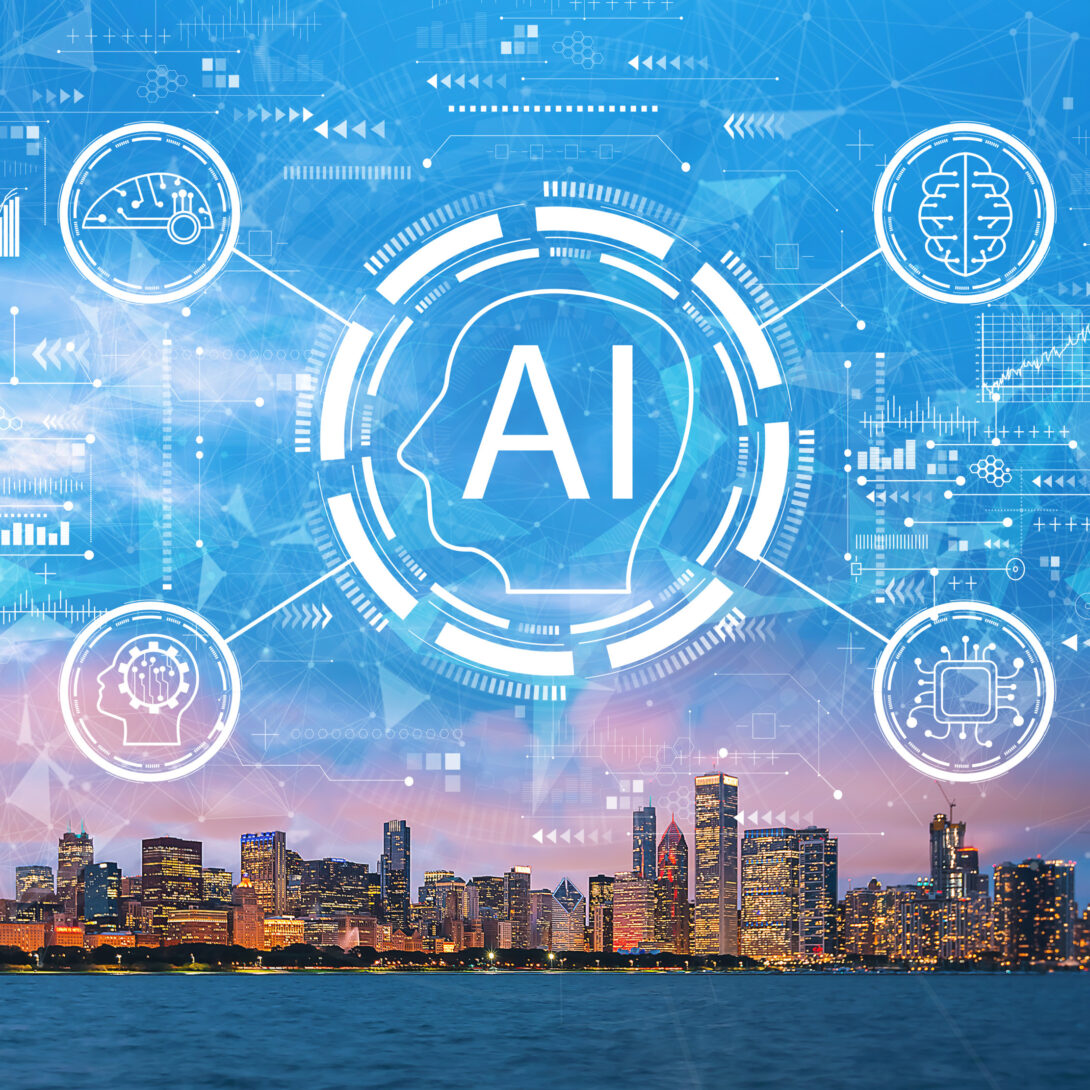Using AI for Good: Top Trends
Explore three top trends where AI is revolutionizing healthcare, education, and environmental sustainability.
Using AI for Good: Top Trends

There’s a growing movement towards leveraging artificial intelligence (AI) for societal good. As technology gets better, we are starting to use AI to address societal challenges and tackle global issues like healthcare, education, and the environment. The integration of AI into various industries offers promising solutions to some of the world’s most critical challenges. Here, we explore three trends at the forefront of this movement:
1. The Impact of Deep Learning on Societal Challenges
Deep learning is a subfield of machine learning that makes generative AI possible. It teaches computers to process data in a way that is inspired by the human brain. With deep learning algorithms gaining traction, generative AI can extract patterns from large amounts of data and generate content based on these learned patterns.
“We’ve seen a lot of AI techniques that work well in small scale settings but have historically struggled to scale up to find solutions to problems we’d like to deal with in the world,” said University of Illinois Chicago’s online Master of Engineering with a focus area in AI and Machine Learning program (MENG) Associate Professor, Ian Kash. “However, deep learning has brought a set of engineering techniques that allows us to address various challenges.”
Emphasizing the significance of deep learning, Dr. Kash thinks it’s important to look at initiatives like the EU-funded VEDLIoT project. The VEDLIoT project represents a pioneering initiative that revolutionizes how cities manage resources and tackle pressing environmental challenges by focusing on leveraging IoT-generated data.
Understanding initiatives like VEDLIoT is important for those interested in learning more about the intersection between technology and sustainability. It provides insights into how governments and organizations can harness AI to address societal challenges.
2. The Benefits of AI in Education
AI is impacting education from early childhood to college. Although generative AI systems, like ChatGPT, have prompted concerns over cheating in schools nationwide, AI tools for teacher and student support are growing in popularity.
Forbes Advisor recently surveyed 500 practicing educators from around the U.S. about their experiences with AI in the classroom. More than half of the teachers surveyed believed AI has had a positive effect on the teaching and learning process.
“There’s an opportunity for educators to learn how to use AI as a tool,” said UIC Associate Professor and MENG Program Director, Carmen Lilley. “We need to shift our approach and think about the benefits of using AI from facilitating assessments to optimizing student learning. There’s a lot of interesting conversations to be had.”
AI has proved to be important in education, from powering educational games to automating grading and feedback computer systems. Its capability to pinpoint gaps in student knowledge also allows educators to deliver personalized feedback which can enhance learning outcomes. It’s in educators’ best interest to utilize AI as a tool. It can help them streamline processes and provide students with immediate support and assistance which can help them stay engaged and motivated.
3. Saving Lives: AI in Drug Discovery
AI-powered healthcare extends beyond virtual doctors. Today, we’re seeing advancements that assist healthcare professionals in diagnosing diseases more accurately and quickly, predicting patient outcomes, and personalizing treatment plans.
According to a study, 83% of executives acknowledge the potential of science and technology capabilities to tackle health-related challenges and diseases. Although the adoption of AI-driven healthcare may seem gradual, the momentum is steadily growing.
AI-assisted drug discovery exemplifies how AI technologies, like machine learning and deep learning, streamline and automate various stages of drug design. Traditionally, drug discovery is a lengthy and costly process with only a fraction of potential candidates making it to market after years of development. AI holds the promise of accelerating this process by identifying promising candidates early which can reduce both time and costs.
Engineers play a crucial role in advancing AI in healthcare by leveraging their expertise to develop advanced solutions that improve patient outcomes, streamline processes and enhance overall healthcare delivery.
Master AI Skills with UIC’s Online MEng Program
UIC’s online MENG program offers a unique opportunity to dive headfirst into the cutting-edge world of artificial intelligence. This 100% online asynchronous program provides students with the fundamentals in AI and ML and helps them build a breadth of expertise in areas such as neural networks, natural language processing, and deep neural networks for a broad range of applications. Full-time students can complete the entire program in as few as 12 months.